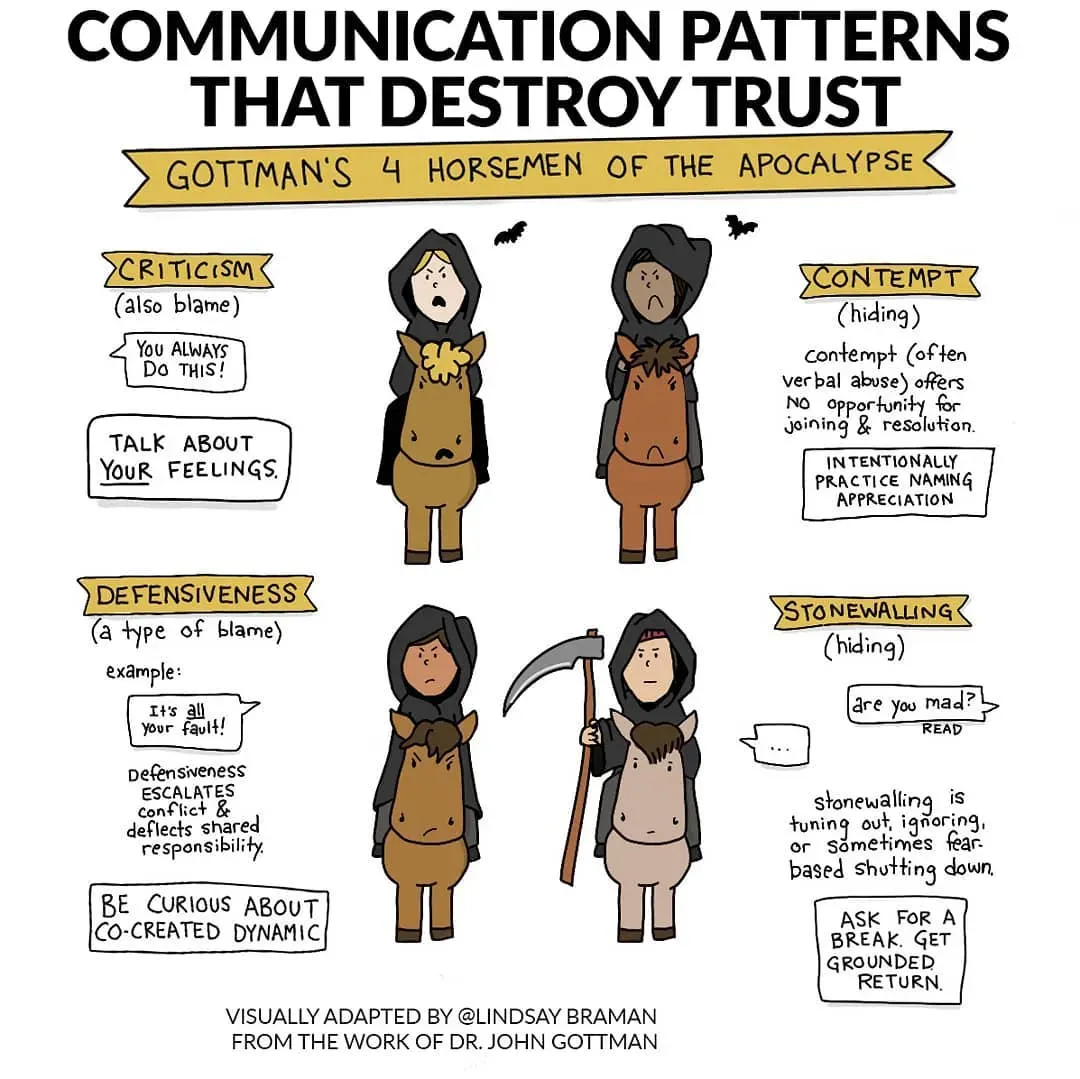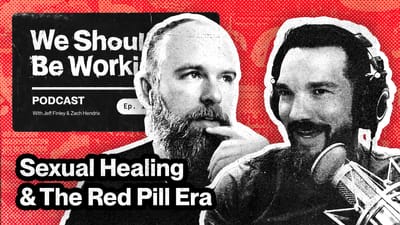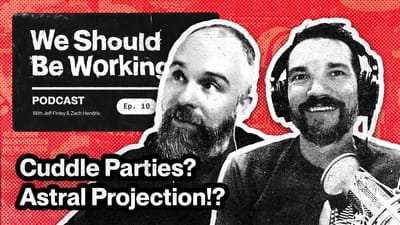Anger and Resentment - A Wake Up Call

The past two weeks have been quite challenging emotionally. My partner Cara and I have had several fights (about the same old stuff). Stuff we've been arguing about since the beginning of our five year relationship.
We'll go through long periods of stable, healthy relating with minor arguments here and there. But sometimes things just blow up and we find ourselves getting heated, throwing daggers and saying hurtful things we don't really mean. In the moment, it feels so real. The stakes feel so high and we don't see a way out. We start questioning our relationship and wonder if this is the end.
But days later, it's like the smoke clears and we're looking at each other with love again and asking "what the fuck was that??" We apologize and try to give ourselves some grace. We feel a high of endorphins as the "good feelings" return. But this pattern of having a massive blow up where we nearly break up, followed with the high of "getting back together" again doesn't feel healthy.
We both talked about how we were raised. We weren't modeled healthy examples of conflict resolution. We saw our parents yell, scream, even hit their spouses. We saw abuse, assault, and violence which was then followed by incredible guilt, remorse, and pleas for forgiveness. That's not how we want to be.
I wrote a post back in January titled Wu Wei, More Play and went into detail about some of the dysfunctional dynamics I grew up with. I also wrote a post titled Words Are Very Unnecessary about the tricky nature of communication in relationships. As we grow and level up as people, we also have to level up our communication skills too. Those old ways of relating just don't work anymore.
I reached out to a friend for some help and he gave me some solid advice. He said it's often not what you are arguing about but how you are arguing.
If we're getting into criticism or contempt, we're playing with fire. Those are two of the "horsemen" that relationship expert John Gottman talks about (see here) They are harbingers of relationship doom.

The type of arguing we were doing is actively chipping away at our relationship. It's hurting our self esteem and making us hold in our concerns out of fear of hurting the other person, which builds resentment. Over time, if we don't change our strategy, things will get worse.
But in the moment, we're so activated and triggered, we are unable to act otherwise. We know we should try to see things from the other person's point of view, but we're in such tunnel vision (both of us are) that we can only see us vs them. We keep forgetting that this state is called dysregulation or some form of fight or flight response. That's when old patterns, emotional flashbacks, childhood wounding, and psychological projections come out. We're not even ourselves when this happens and we can't judge our relationship on how we see things in this altered state.
Leveling Up Emotional Skills
My friend told me how he and his wife used to fight a lot but things got better after working on it in couple's counseling. He recommended I check out more of John Gottman's work, especially the Dreams Within Conflict technique (see this PDF). We are going to try this out.
Another thing he recommended is having a weekly couple's meeting. A place where you can sit down and not only bring up concerns, but reinforce the positive qualities in each other. A time to build each other up and help support each other's dreams and goals.
The funny thing is that we JUST implemented that idea last week. I've been wanting to schedule a weekly couple's meeting for awhile because I feel like neither of us are that good at scheduling time for just ourselves. We both tend to be exhausted from everything else we're doing and aren't putting ourselves first nearly as much as we should. So we need to dedicate time at least once a week to put ourselves first. Looking forward to seeing how this goes.
The other thing that we really need to do is take breaks if we're getting "activated" during an argument. If we are in that familiar dark tunnel, we need to stop and go our separate ways for 20 minutes and come back to it. Sometimes even just five minutes does the trick. But in that altered state, you feel like everything is urgent and the only way to solve it is to dig in more. Wrong.
Healing My Own Childhood Neglect
In addition to the couples-focused help I'm getting, I'm also finding more meaningful ways to work on myself. I should say, love myself, and heal. Because I can't approach myself as a problem that needs fixing.
Last week I picked up the book Running on Empty, by Jonice Webb about recovering from childhood emotional neglect. This has been eye opening for me and definitely describes many of my symptoms and adult behaviors. It's not always what your parents or caregivers did to you growing up but what they didn't do. Even the most loving and well meaning parents don't know how to properly handle the emotional needs of their children.
I also got into the Crappy Childhood Fairy on YouTube. She really nails so much of what it was like growing up in a poor, alcoholic family and her advice matches a lot of the other advice I've seen from Pete Walker (Complex PTSD: From Surving to Thriving) or Bessel A. van der Kolk (The Body Keeps the Score).
She made a video about signs that you weren't listened to or taken seriously growing up and this shit hits home.
She's got this thing she calls her Daily Practice as a way to safely handle your fear, anger, and resentment without bottling it up or unloading on your partner. Basically it is a combination of writing your fears and resentments and surrendering them to your higher power. This, coupled with meditation, can go a long way in regulating your own nervous system and getting out of fight or flight reactions that stem from your past. I already do some form of this, but it couldn't hurt to add it to my toolbox.
Other resources that have helped me:
- The Adult Child podcast - an unfiltered and brutally honest (shit)show from someone who has been through a dysfunctional childhood. Entertaining and affirming.
- Chump Lady Podcast - It's called "Tell Me How You're Mighty" but it's really a podcast for those who have been cheated on (aka chumps) from Tracy Schorn (aka Chump Lady), author of Leave a Cheater, Gain a Life. Doesn't pull any punches or make excuses for the cheater, unlike Esther Perel (whom I appreciate). It took me years to actually feel the anger of being betrayed in my marriage. My ex cheated on me multiple times and lied about all of it.
- Financial Recovery: Developing a Healthy Relationship with Money book by Karen McCall. I heard about this on the Adult Child podcast and so far it's good. It talks about the cause of underearning and financial dysfunction are rooted in shame and trauma from childhood. Even though we KNOW about our problems with money, we can't stop from repeating them and this book gets into why that is and how to heal the root cause. I've been working on healing my money issues for years it seems like, but this book is helping me out right now.
Anyway, that's about all I have to share this week. If you are in a relationship and have gone through similar troubles, I'd love to hear what works for you. Thanks for reading, until next time!
Have a good weekend ✌️
Jeff
No spam, no sharing to third party. Only you and me.








Member discussion